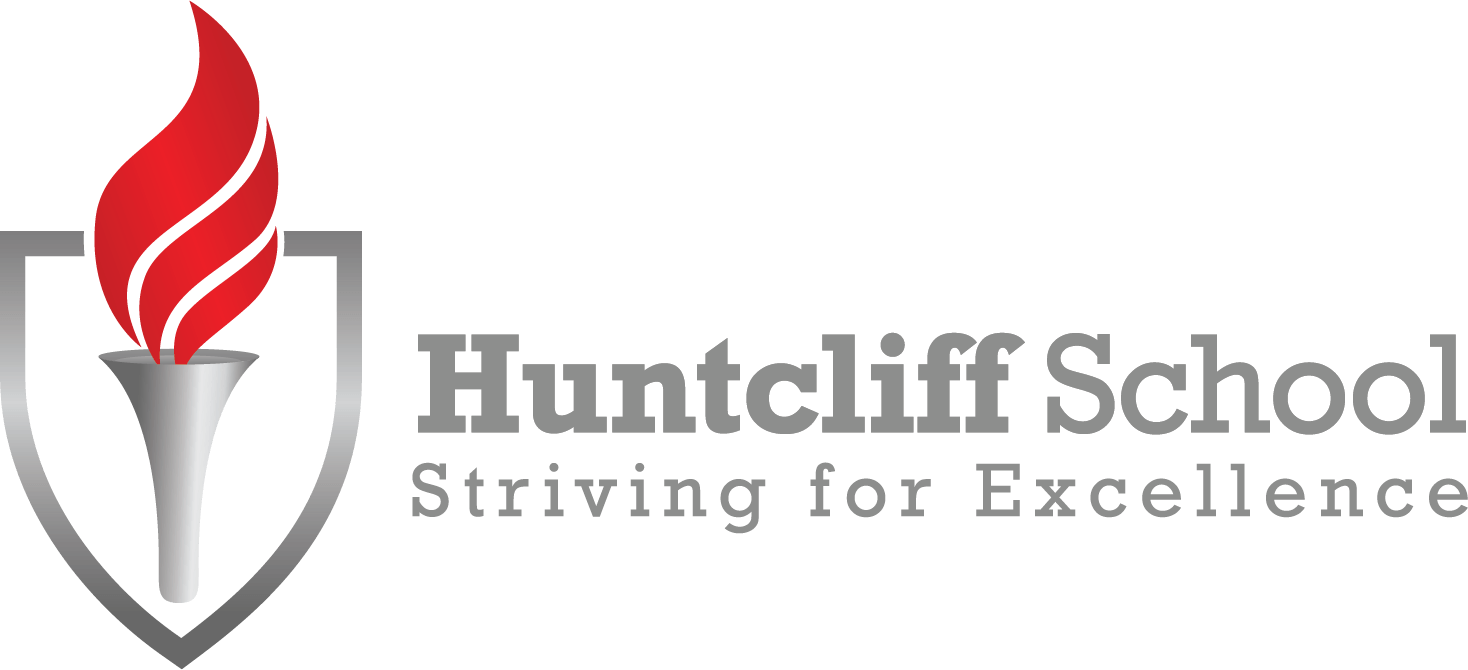Intent
At Huntcliff School we provide all our students with an engaging and aspirational curriculum that allows them to strive for excellence. We want all of our students to be the best that they can be and we ensure that they are provided with the opportunities in and outside of the classroom to thrive. By raising aspirations, empowering them with knowledge and skills, Huntcliff students will become well rounded citizens, setting themselves up for the future they deserve. We understand the challenges that are presented by the local context of Lincolnshire, by raising aspiration and expectations of our students they will develop an ambitious mindset.
Our curriculum is broad and balanced and seeks opportunities to expand the minds of our students. It is sequenced to build up knowledge and skills over time whilst promoting opportunities to increase their cultural capital. Expertise often lies beyond the school, and learning opportunities are regularly planned with partner organisations including as well as employers and charitable organisations.
We recognise that to provide all students rich learning experiences our curriculum needs to be inclusive and allow all students to achieve their best, regardless of any barriers to learning. We actively seek to remove these barriers so each student is personally successful and ready to move onto the next phase of education or training, contributing positively to society.
Proficiency in reading is a priority to the school, we explore opportunities for reading in the curriculum as well as during form time. We encourage our pupils to read around their subjects, helping to develop their understanding of the world and expose them to societies and cultures they may not have experienced directly.
Implementation
The curriculum is carefully sequenced to create foundations of key concepts that are built on over time. It is designed to introduce new knowledge and skills, in an engaging way. Providing students with opportunity to stretch and challenge themselves on a daily basis. The knowledge and skills are retained through regular practice at each stage of their learning journey. By establishing a positive learning environment and upholding our behaviour for learning principles in each lesson a consistency is created that allows pupils of all need to flourish.
When planning and teaching the curriculum, teachers ensure students’ cognitive capacity is not overloaded by focussing on maximising intrinsic load and minimising extraneous load. They use a variety of techniques including pre-teaching and segmentation to ensure students process information into their long-term memory.
Curriculum leaders have used their expertise to carefully construct their schemes of learning that will spark an interest and enthusiasm for the subject to last a lifetime. A spiral curriculum allows content to be revisited and understanding is assessed before new content added. This allows immediate interventions to take place throughout the students learning, so gaps in knowledge are minimised. Our lesson format is designed to be consistent but not constraining, so teachers can deliver content in a way they find appropriate for their groups. We start with a retrieval practice activity to bring previous knowledge back into the working memory, we introduce what we are learning today and share outcomes. We signpost what we want our students to ‘achieve’ and support them to ‘aspire’ to the more challenging aspects of the lesson. There are numerous opportunities to demonstrate understanding in lessons and structures to support those struggling.
Social skills of students are supported by teaching in a variety of ways including groups discussions, class talk and teamwork. Teachers know the importance of students having a broad and sophisticated vocabulary and recognise it is a way to promote success regardless of starting point, so the explicit teaching of vocabulary is evident in all curriculum areas.
Key Stage 3
We want to give students a broad base over the 3 years they study so they can learn about a range of subjects and skills. We are proud to offer our students 2 languages as well as a varied suite of Arts subjects such as Music, Art, Design and Technology and PE alongside the core and EBacc subjects. Each subject breaks topics down, with an assessment point at the end of every unit. Assessment grades and attitude to learning grades are collected at 2 points in the year. This information is evidenced by the assessments done in class as well as 2 formal assessment points undertaken by English, Maths, Science, History, Geography and MFL. Proficiency in reading is a priority to the school, and there are interventions for students below chronological age to support them. Exploiting opportunities for reading across the curriculum is something we plan into our learning. As students near the end of their KS3 journey, they are supported through an options process, guiding them onto paths which suit their aspirations for the future. Year 9 is designed to push students with the rigour and demand of GCSE style assessment, easing the transition into KS4.
Key Stage 4
When entering KS4 our students study the core subjects of English, Maths and Science as well as being offered a range of GCSE and BTec qualifications to suite them. The Key Stage 4 curriculum builds on the key knowledge and skills students have embedded at Key Stage 3. By allowing students a choice of curriculum options, they are able to take steps towards the future they are building for themselves whilst fostering a love of the subjects they choose. We offer a range of option subjects including History, Geography, MFL, Music, Art, Separate Sciences, Design and Technology and Sport Science. At KS4 opportunities to practice exam skills are embedded into lesson time throughout the academic year so students are as confident and comfortable with the external assessments as they can be. Within subjects, opportunities for discussing possible careers are exploited and a range of skills such as analysis, evaluation and discussion developed to further support success post 16.

